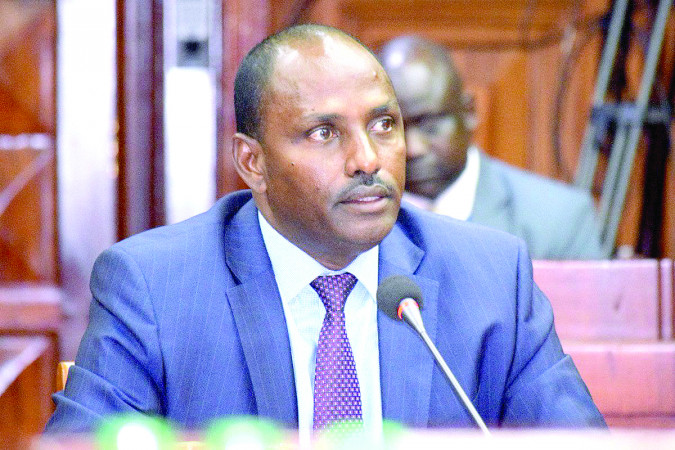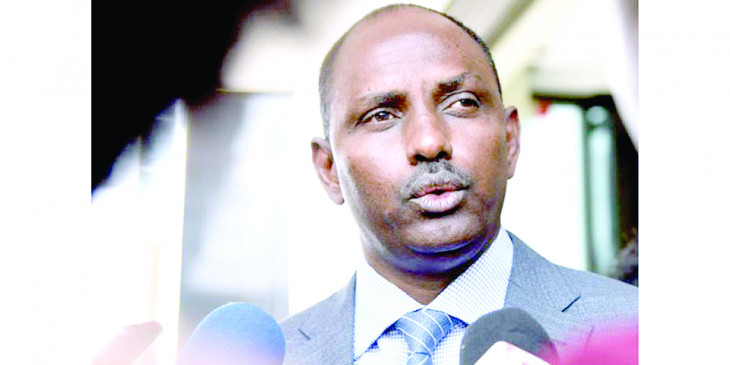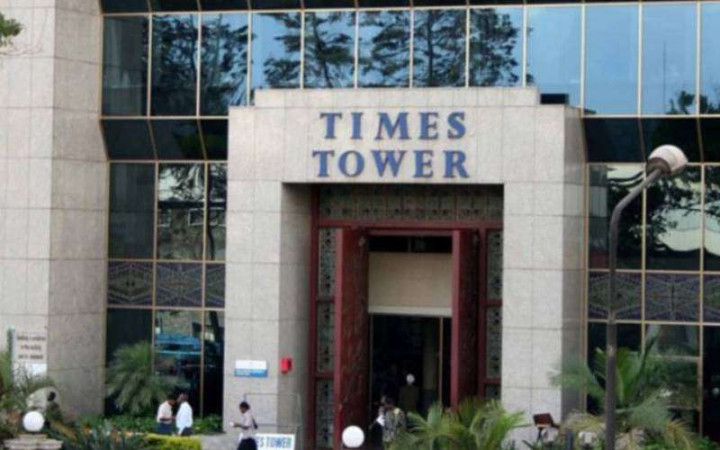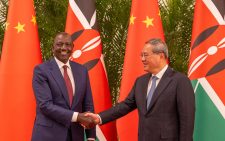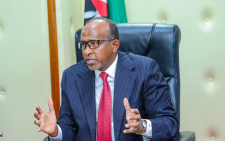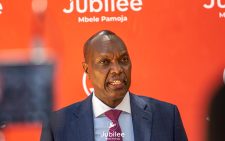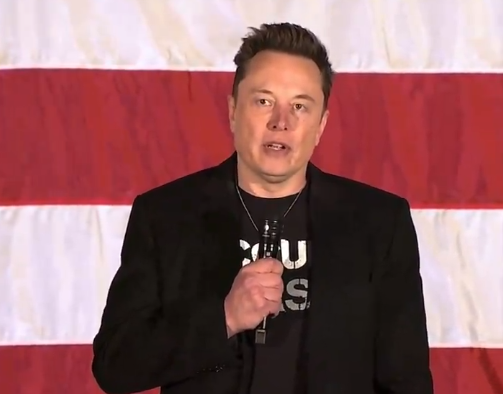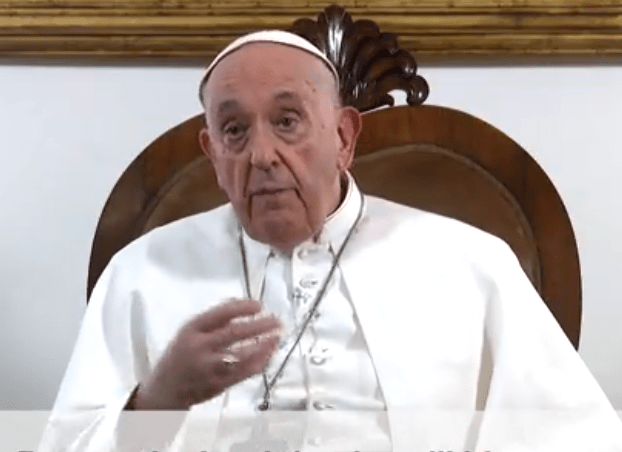IMF reaffirms Sh255b loan as protests grow

The International Monetary Fund (IMF) on Tuesday, April 6, reaffirmed its commitment to a $2.34 billion (Sh255 billion) loan to Kenya to address debt vulnerabilities and bolster the next phase of Covid-19 pandemic responses.
The move comes as a petition opposing the loan gathered momentum with more than 200,000 people having signed up.
The lender’s approval enables immediate disbursement of about $307.5 million (Sh33.5 billion) to be used for budget support.
“On April 2, 2021, the Executive Board of the International Monetary Fund (IMF) approved 38-month arrangements under the Extended Credit Facility (ECF) and the Extended Fund Facility (EFF) for Kenya in an amount equivalent to SDR 1.655 billion (305 per cent of quota or about $2.34 billion (Sh255b),” said IMF in a statement released yesterday.
Antoinette Sayeh, deputy managing director and acting chair, said Kenyan authorities should continue to provide necessary support to the economy and secure space for social and development spending even as they have appropriately reversed some extraordinary measures, including the temporary tax cuts which ended in January, 2021.
Poverty reduction
Even with this recovery, and as challenges remain in the return to durable and inclusive growth, past gains in poverty reduction have been reversed.
On Tuesday, Kenyans continued to express reservations against the latest loan but economists differ on the wisdom of borrowing more when the country is already struggling with a huge debt burden.
Abdalla Abdulkhalik, the chief executive of Gulf African Bank, in a telephone interview said the government debt was finite provided the serviced loans did not lead to defaulting.
“The most important thing is to observe fiscal discipline and avoid deficits that cannot be serviced leading to default situations,” Abdalla said.
However, a senior Economics lecturer at the University of Nairobi, Samuel Nyandemo, faulted the government for its inability to generate own income.
One option, he said, was for the Kenya government to borrow a leaf from a country like Tanzania, which has mobilised internal financial resources and committed to zero tolerance to corruption.
“Kenya is living beyond its means. The borrowing has surpassed its GDP, which is not good for business,” he said
Churchill Ogutu, the Head of Research at Genghis Capital noted that though the loan was not unexpected, petitions to lenders are a tricky affair.
“The IMF loan is not a surprise. This is a commercial financing loan whose interest terms are quite low and period of repayment is about three years.
However, going forward the spotlight will be on authorities on transparency,” said Ogutu in an interview.
“The IMF is not tone deaf to those social media noises only that it doesn’t have the mechanism to deal with such arising matters, but it will demand a high level of transparency.
“At the close of the campaign they will submit the digitally signed documents to the respondee.
But this particular campaign doesn’t seem to have a deadline, and the signatories limit is re-adjusted every now and then.
It started at 5,000, then 15,000, then 25,000 then 50,000, now I am seeing 150,000 and who knows where it will end?” Ogutu posed.
Through global lobby website, Change.org, the petitioners want the IMF Executive Board to cancel the loan because of alleged corruption involving previous disbursements.
“This is in recognition of the fact that previous loans to the Kenya government have not been prudently utilised and have often resulted in mega corruption scandals,” read the petition initiated by one Jefferson Murrey.
The petition highlights previously borrowed loans and questions utilisation of the funds, amid mounting tax burden on Kenyans.
“The scandals have not deterred the ruling regime appetite for more loans, especially from China. Right now Kenyans are choking under the heavy burden of taxation, with the cost of basic commodities such as fuel skyrocketing and nothing to show for the previous loans,” the petition read.
The 2021 Budget Policy Statement says Kenya’s public debt stood at Sh7.6 trillion as of June 2020, equivalent of 65 per cent of GDP.
Presently, the country borrows an estimated Sh120 billion a month from various financial outlets including the World Bank, European Union, Africa Development bank, and USAID, among others.
Treasury Cabinet Secretary Ukur Yatani says the loans are necessary and meant to cushion the economy on the back of Covid-19 shocks, with IMF saying Kenya’s loan remains sustainable.
However, the country is at risk of debt distress hence the need for urgent structural policy challenges.
The public debt increased from Sh1.3 trillion 10 years ago and it is estimated to hit Sh8.7 trillion by December, and cross the Sh9 trillion mark by June next year.
“We are, therefore, calling on the IMF to suspend the disbursement of the loan package it recently approved until proper accountability mechanisms to ensure it will be prudently managed and accounted for,” the petitioner said.
The petition adds to the disquiet among struggling Kenyans who took to social media during the Easter weekend to express their disapproval of more loans, saying the funds might be misappropriated.
“Stop dishing (out) loans to Kenyan government. We the citizens are already overburdened.
The said loan will end up in the pockets of a few gluttonous politicians,” posted Zachary Kittony on his Facebook page.
The petitions come at a time when many Kenyans are living in extreme poverty which has been heightened by the coronavirus pandemic, which has seen more than 1.7 Kenyans lose jobs since the virus hit the country in March last year.
Last week, the government enforced lockdown measures in five “red zone” counties on top of curfew restrictions in a bid to contain the virus spread, a move that had drawn protests by some Kenyans including the clergy.
The Constitution grants people the freedom to stand up and speak out against any injustices they feel are happening aground them, but also grants the power to help change those injustices.
By law every person has a right to petition Parliament to consider any matter within its authority, including to enact, amend or repeal any legislation.
Equally, the National Assembly is allowed by law to make provision for the procedure for the exercise of this right.
Yesterday, Ogutu said the IMF petition pointed to lack of transparency on how public debt is managed.
“Going forward, that will lead to transparency because that is what Kenyans are yearning for. Once there is transparency, I think all this noise will fizzle out,” Ogutu said.
He said that although IMF was unlikely to cancel the loan, the petition could result in improved transparency from government on how loans are spent.
“From an IMF perspective, I don’t think they will directly respond or cancel the Sh255 billion loan.
Perhaps now IMF will engage with the government to be more transparent about the loans,” he said.
